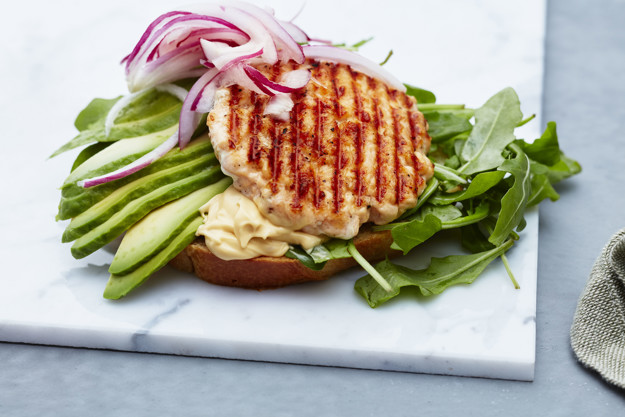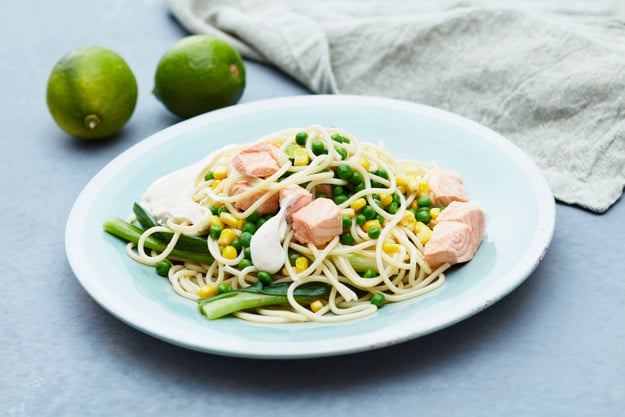Many people want to develop good and healthy habits, particularly in relation to their diet. But what is the secret to keeping them going in the long run?
If you Google “what is healthy food?” you get almost six and a half billion hits. Perhaps that isn’t surprising, bearing in mind how much uncertainty there is about what is actually healthy. Nutritionist and researcher Caroline Jensen has helped us to sort through the mass of information.
Human beings need nutrients like carbohydrates, proteins, fats, vitamins and minerals, and they are what should form the basis of a healthy diet.
“We are advised to eat a varied diet containing lots of vegetables, fruit, berries, fish and fish products, while limiting our intake of salt, sugar, processed meat and red meat”, says clinical nutritionist and researcher Caroline Jensen.
She goes on to say that the things we eat often and in large quantities have most impact on how healthy our diet is. Equally, she wants to stress that you can still enjoy treats within a healthy diet.
“In a healthy diet, there is also room for sweets, cakes, soft drinks and those kinds of foods”, she explains.
Three top tips
Caroline knows that many people struggle to stick to a healthy diet. She believes there are many complex reasons why it is so difficult to keep going, and she highlights three key factors that she considers vital to success: planning, realistic goals and a positive attitude.

1. Planning
Caroline considers that a lot of the answer lies in good planning. She suggests drawing up a weekly menu and making sure you always have good basic ingredients to hand in your fridge.
“That makes it easier to have fish two or three times a week, for example, or to get your five daily portions of fruit and vegetables, and so on. Good planning also helps to reduce food waste”, she adds.
That is one of the UN Sustainable Development Goals. The target is to halve food waste, measured in kilos per person, at the retail and consumer levels by 2030. It is estimated that a third of all food produced in the world is never eaten, and the latest report on climate change concludes that cutting food waste is one of the most important measures to help combat climate change. Reducing food waste is good for the planet and good for our wallets.
2. Set realistic goals
People have a tendency to go all out. They want to eat more fish and less meat, eat five portions of fruit and vegetables a day, stop eating chocolate and exercise five times a week. If you try to do that, it is easy to lose motivation and choose to go back to your old habits.
“It is a good idea to set specific, realistic goals, and to start little by little”, says Caroline.
For example, if your long-term goal is to have two or three portions of fish a week, she recommends starting by having one fish dinner a week, and if your long-term goal is five a day, start with one portion of fruit or vegetable with two different meals.
Many people agree with her that the best way to change your habits is to start gently, including B.J. Fogg, a researcher at Stanford University. He believes that big changes in behaviour require a lot of motivation, which is often hard to maintain. His solution is to start with small habits that make it as easy as possible for you to begin with, before gradually stepping it up.
3. A positive attitude
Focus on what you want to eat more of, such as including more vegetables, fruit, berries and fish in your diet.
“This will promote a positive attitude towards diet, and I think it can help you to stick to a healthy diet over the long term”, says Caroline.
Healthy food also gives us energy, which in turn creates a positive attitude. Did you know, for example, that it has been proved that the omega-3 fatty acids found in salmon improve your mood?

Seafood is important
In general, fish and seafood contain many important nutrients that influence our health and wellbeing. There is no disagreement that they form a key part of a healthy diet.
“Vitamin D is a micronutrient that most Norwegians get too little of during the winter months. One of the few foods that is a good source is fatty fish, such as salmon and mackerel. Meanwhile, lean fish, like white saltwater fish, is a good source of iodine. In general fish is a good source of protein, vitamin B12 and selenium, as well as the omega-3 fatty acids that we don’t produce much of ourselves”, says Caroline.
If you need inspiration for some tasty seafood recipes, have a look here.
